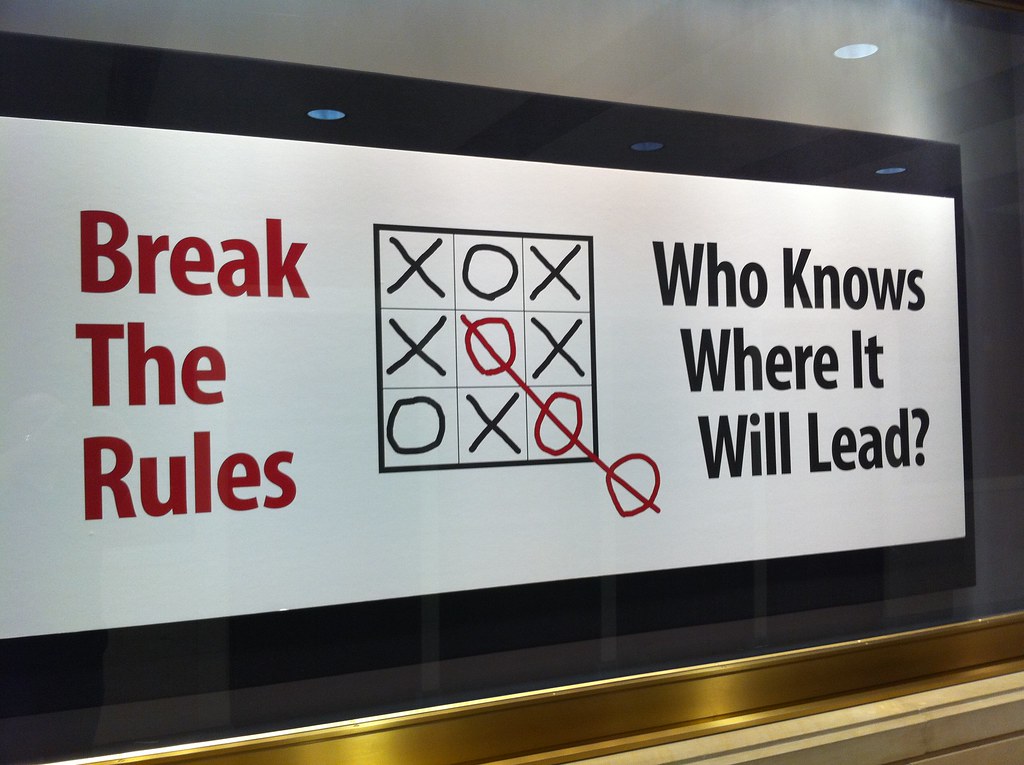 |
| Image via https://www.flickr.com/photos/brentdpayne/ |
A sub-headline from the Wall Street Journal's article about the recent viral incident aboard a United Airlines plane immediately had me thinking about some of the things we do in schools. The headline about the situation where a United passenger was forcibly removed from his seat for refusing to give it up was the following:
"Airline’s rules-based culture in spotlight after man was dragged off flight by law enforcement."As I read through the article a few other lines had me thinking about what we sometimes do in schools. Feel free to substitute school for airlines and students for passengers wherever appropriate:
"Like most Airlines, United Continental Holdings Inc. follows strict rules on every aspect of handling its passengers... "
"Deviating from the rules is frowned upon..."
“Employees followed the policy,” said a person familiar with United’s executive suite.
On Wednesday morning, in an interview with ABC, United CEO Oscar Munoz called the event a “system failure” and said United hasn’t provided its front-line managers and supervisors with “the proper tools, policies, procedures that allow them to use their common sense.”These quotes and the entire sad situation that played out on the United Airlines flight reminded me of the theme of chapter 4 of The Innovator's Mindset by George Couros. Chapter 4 is titled Relationships, Relationships, Relationships and the main point that George makes is the need to establish a culture of trusting relationships where employees feel empowered to make decisions that are in the best interest of the customer (students).
He goes on to explain the fact that this is not the individual employee's fault, but it is more of a leadership issue due to the establishment of a culture that does not trust employees to make common sense decisions.
Let's face it, we see a number of embarrassing stories from schools each year that are caused due to rigid compliance to an outdated set of rules. If we are truly interested in having learning environments where staff and students are comfortable taking risks and thinking outside the box then we need to revise these ridiculous sets of rituals. The following quote from George in Chapter 4 sums up the rationale for this shift perfectly.
"As leaders in education, our job is not to control those whom we serve but to unleash their talent. If innovation is going to be a priority in education, we need to create a culture where trust is the norm. This must be modeled at the highest level of the organization if we expect teachers to create the same culture in their classrooms."
Hey Pal,
ReplyDeleteGreat bit -- and you are right: Schools are most frequently "policy first" kinds of places.
What worries me the most is that rigid adherence regardless of the circumstance is MORE common in buildings that serve high needs populations. When pressure is high to "produce results", standardization -- of practice, of application of policy -- becomes the norm rather than the exception to the rule.
Worse yet, high needs schools are more frequently staffed by rookies -- principals and teachers without a ton of experience. There's nothing inherently bad about rookies, but they have far less social capital within the system. That means they are far less likely to take any kind of risks -- and far MORE likely to "stick to the script" and "adhere to the policy" than veterans with a proven track record and strong relationships with people in positions of power.
What's that all mean?
The kids in our poorest schools are also more likely to be stuck in "United Airlines Learning Spaces."
That's another example of systemic inequity in education.
Anyway -- hope you are well and happy! Thanks for making me think this morning.
Rock on,
Bill
Thanks Bill! I feel like you hit the nail on the head in regards to the difference between managers and leaders.
DeleteI hope all is well on your end.